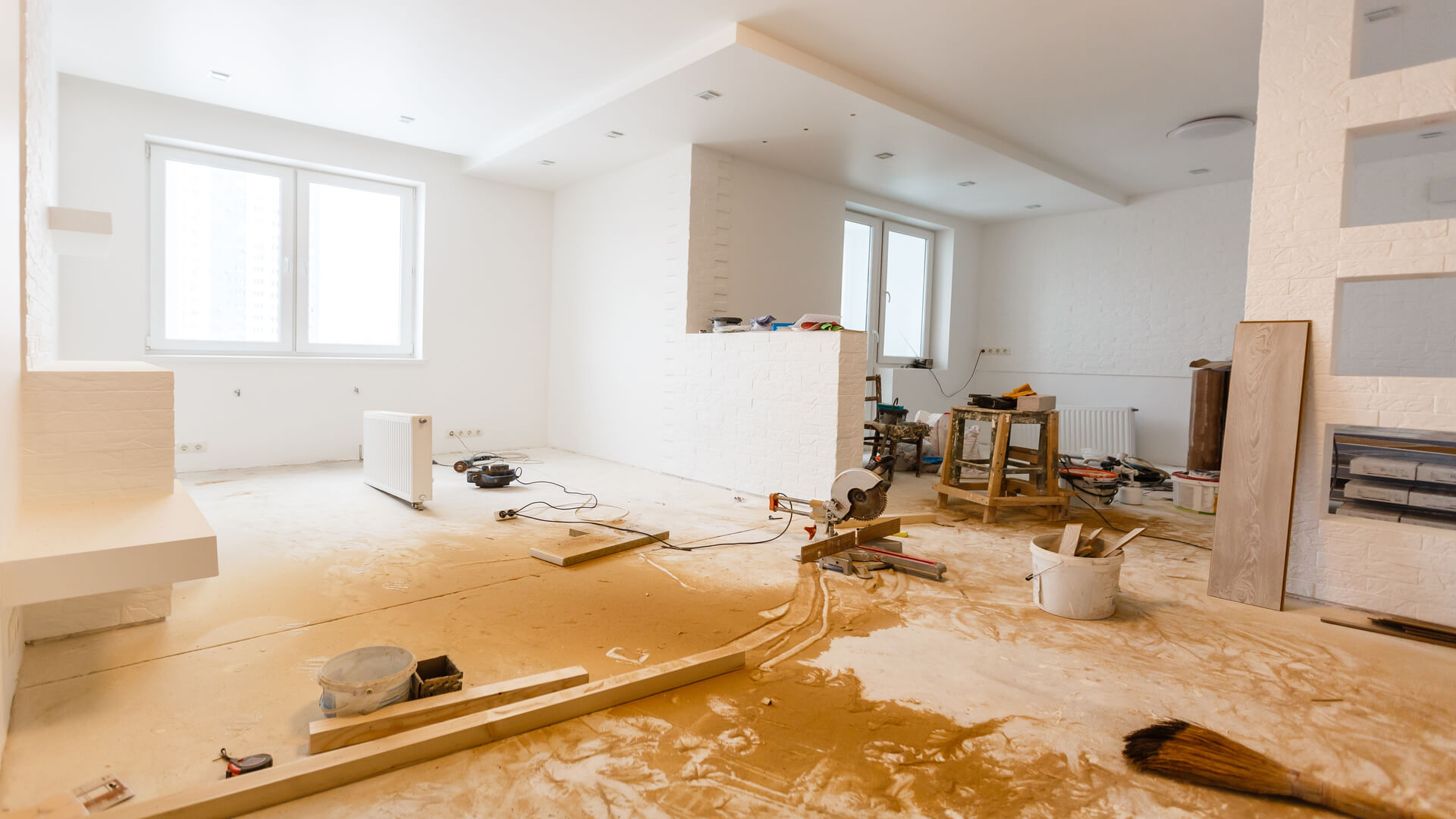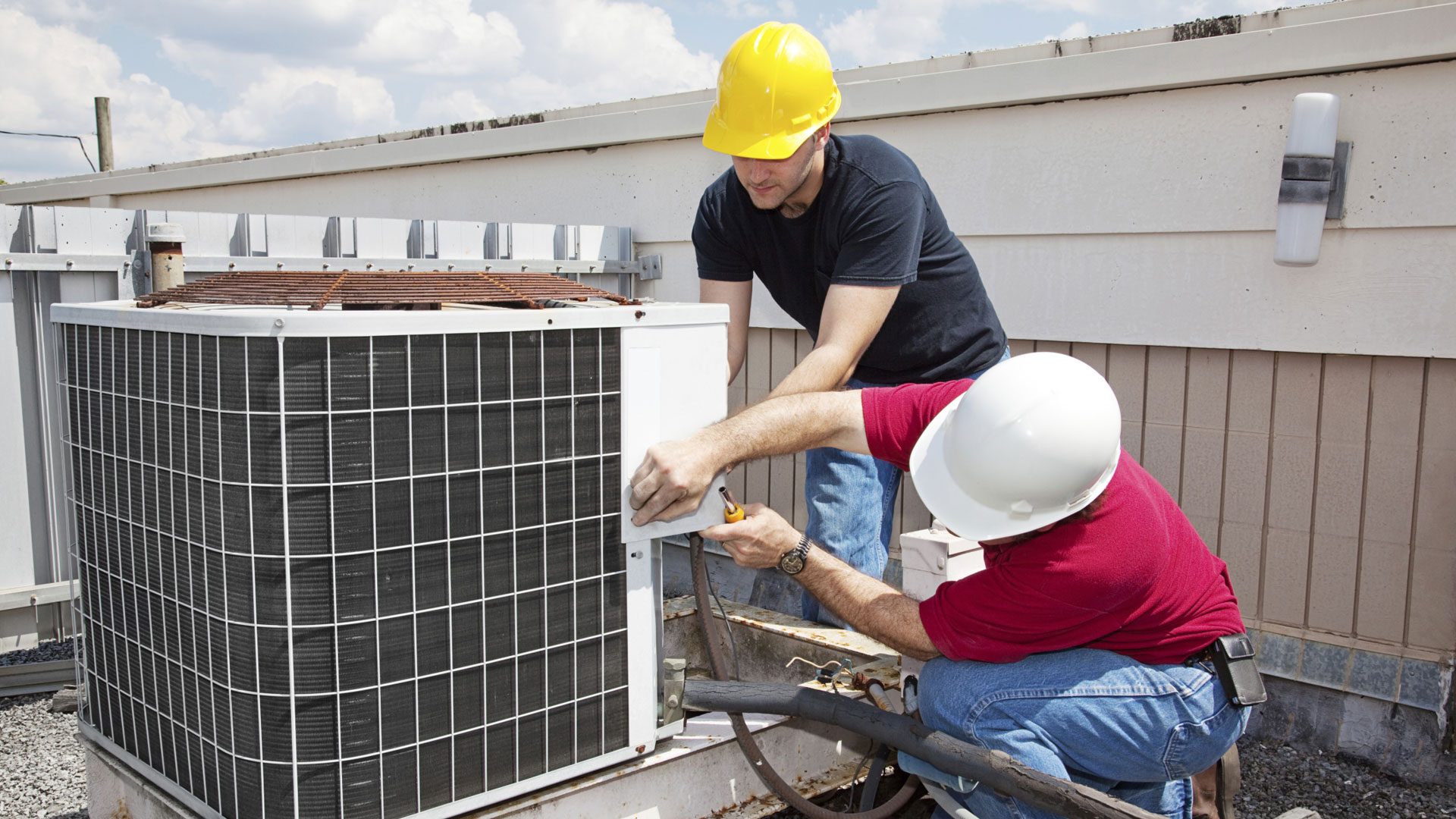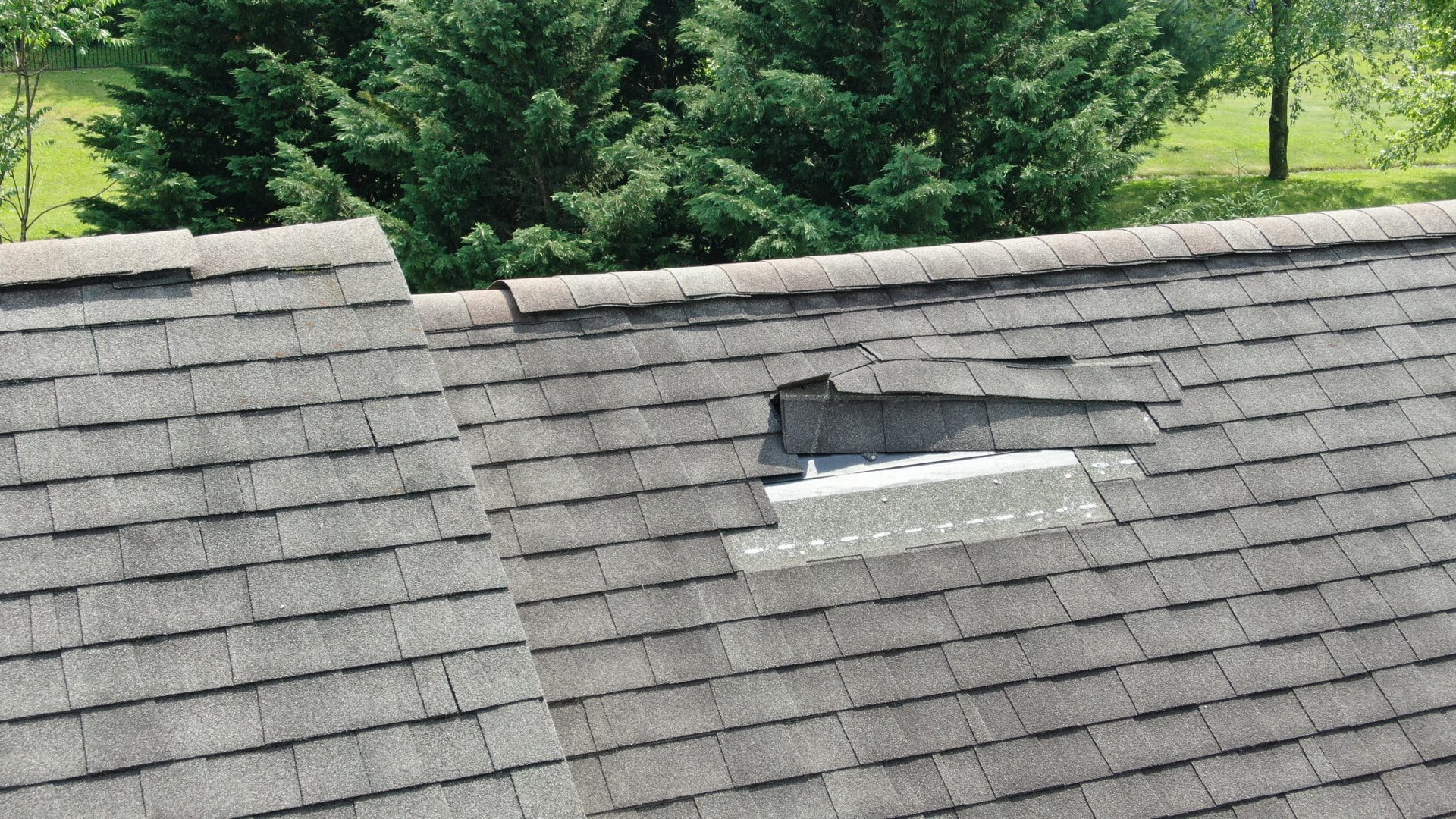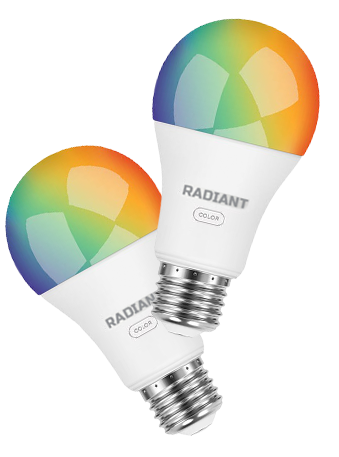
Tips All Homeowners Should Take Advantage Of
The sound of power tools is roaring in neighborhoods across the United States. When the dust clears and the paint dries, your home will be full of personal touches rather than the remnants of someone else's life. A house that's just how you want it without the premium price tag of new construction? Now that sounds like a dream house.
The typical homeowner spends $13,153 a year on maintenance and repairs, home improvements, property taxes, and homeowners insurance. The American dream need not be a financial nightmare, though. You can save money as a homeowner by lowering your utility bills, exploring tax breaks, home remodeling, looking into refinancing your mortgage, reducing your homeowners insurance premiums, or boosting your credit score.
1. Lower your homeowners insurance costs

Some homeowners may be able to shave money from their home expenses by lowering their homeowners insurance bill. Data released in 2020 by the National Association of Insurance Commissioners shows the average annual premium for homeowners insurance stood at $1,249 in 2018.
How can you decrease your homeowners insurance premium? Here are four potential ways:
- Shop around. SmartFinancial is the best site to find and compare quotes. View the rates for the nation's top insurers and save up to 50%. It's super quick and easy. Answer a few questions to see your savings. Compare insurance quotes from at least three companies, and you may be able to find another insurer that can cover your for less.
- Raise the deductible. If you bump up the deductible from, say, $500 to $1,000, you may be able to cut your premium. The deductible is the amount of money you pay out of your own pocket when your insurer approves a claim.
- Bundle policies from the same insurer. If you purchase homeowners insurance from the same company that insures your car, you may be able to score a lower premium. Insurers call this "bundling".
- Ask about discounts. You might qualify for premium discounts if, for instance, you've installed a burglar alarm or you're older than 55. Or you might secure a loyalty discount by staying with an insurer for a certain number of years. There's no risk in calling your insurer to check.
2. Don’t Get KO’ed by Home Repairs!

According to HomeAdvisor, the average national cost to replace central air conditioning is $5,750, and installing a water heater costs an average of $1,159, including the unit and labor. Choice Home Warranty has stayed true to its mission of protecting homeowners, buyers, and sellers. They offer the best service in the industry at the lowest cost. Choice is the best home warranty company for thousands of happy policy holders because we listen to our customers.
“A home protection plan can be a great form of financial security against unexpected, expensive, home repairs,” says Brown. In fact, according to the Service Contract Industry Council, contract holders on average utilize their home service contracts more than two times a year.
Take The Choice Home Warranty Quiz + 1 Month FREE + $50 OFF!
3. Consider Refinancing – Rates Are Near All Time Lows

More than other factors, your annual percentage rate on your real estate purchase will affect your monthly payments — whether you’re refinancing or buying a new home.
Refinancing to a lower interest rate could save hundreds of dollars a month if you kept the same loan terms. Shortening the loan term could negate your monthly savings but save thousands over the life of the loan. You can experiment with a mortgage calculator to find out how much a lower rate could save you. At the Current Rates for a $250,000 Loan:
- 30 Year Loan @ 2.125% = $941.55 in monthly payments (not including taxes, insurance, or HOA fees)
- 15 Year Loan @ 1.75% = $1580.55 in monthly payments (not including taxes, insurance, or HOA fees)
- 10 Year Loan @ 1.75% = $2272.97 in monthly payments (not including taxes, insurance, or HOA fees)
How much money can you save?
You will never regret the money you’ll save. It is easy to calculate your new mortgage payment with AmeriSave. It only takes a few minutes to receive a customized rate quote.
"AmeriSave's employees were knowledgeable, polite, and very responsive. Excellent customer service. Speedy Closing."
4. Stop Paying For Power - Benefits of Solar Energy

We'll begin with a summary of the main advantages of solar energy.
You can significantly reduce or even eliminate your household electric bills.
One of the most significant benefits of solar energy is also the most obvious: By harnessing energy from the sun, you can cut back your dependence on electric utility, which means you'll see a sharp drop off in your monthly electricity bills. In fact, the average solar system lasts for two to three decades, which means that your return on investment will pay for the system itself over time.
Going solar can reduce your carbon emissions.
Another one of the main advantages of solar energy is that it's a clean and renewable energy source. What this means is that you reduce your greenhouse gas emissions and decrease your environmental impact. While energy from coal and other fossil fuels tend to create a lot of environmental pollutants, solar energy does not produce any direct pollution at all, which makes it far and away the most environmentally friendly way to power your home.
Investing in a solar power system can increase the value of your home.
Solar homes are becoming considerably more appealing, and installing the best solar panels can bump an estate's resale value by a decent amount. Note that this helps offset one of the primary cons of solar energy, which is the steep startup cost of solar panels — but more on that later.
Going solar can make you eligible for rebates and tax incentives.
Over the past couple of decades, the federal government has implemented numerous plans to incentivize solar energy, including tax credits and rebates. Many state governments have followed suit, particularly those where sun exposure is most consistent. (North Carolina has actually been one of the leaders in this space.) Thanks to this, there are some significant ways to recoup part of your solar investment almost immediately. Again, this can help offset the initial cost of your solar panel system, allowing you to generate some savings even before those utility reductions begin to stack up.
Generating your own electricity means paying a lot less (and maybe nothing!) for your home’s energy. Plus, you’ll reduce your carbon footprint. And right now federal tax credits for solar installations are available that can help offset the investment. Home Solar Rebates can help you save big on Solar. View your monthly savings, Compare quotes from top installers, and check the State and Federal incentives.
5. Upgrading your home to a smart home system

The point of a smart home? Simple. To make home control easier while increasing the convenience, security, and efficiency of your living space. A Vivint smart home system lets you control your lights, check on your porch, or adjust the temperature from anywhere, all from the Vivint app. All Vivint products work together seamlessly giving you the peace of mind that comes with a secure, comfortable home. From sensors, smart locks and lighting, to indoor and outdoor security cameras, Vivint smart home devices work together as one system to enhance convenience and safety. You can even integrate your system with Google Assistant, Amazon Alexa, a Nest thermostat, and other products that work with Vivint.
Sign up today and get a $50 Visa Gift Card.
6. Installing energy efficient windows

One thing’s for sure: leaky, aging windows on your home are not doing your utility bills any favors. Single pane windows just can not beat the energy performance of quality double pane energy saving windows. In fact, the Department of Energy estimates that you can save $125 to $465 dollars a year just from replacing windows with new windows with higher Energy Star ratings.
However, energy savings are not the only way to calculate the worth of a new window installation. New windows also increase your home’s property value. In fact, installing a set of new vinyl windows could add as much as $12,000 to your home’s selling price, meaning they’re a pretty smart idea if you’re getting ready to list your property or plan to sell your home in the future.
Renewal By Andersen is your replacement windows experts. Buy One Get One 40% Off Your Project + $100 Off Per Window and Door.
7. HVAC Repairs

HVAC repairs cost between $150 and $450 on average with most homeowners spending $319 on AC service, and $268 on furnace service. HVAC contractors charge an hourly rate of $75 to $150 with a minimum service call fee of $75 to $200, which applies towards the first hour.
HVAC maintenance costs can be as low as $15 per month, or about $150 to $300 yearly and include twice annual tune-ups, cleaning, and heating and AC adjustment. Most HVAC maintenance contracts and service plans offer priority scheduling and discounts on service repairs. Letting any problems linger can raise your utility bills, or even worse, release dangerous VOC's into your home.
Don’t be left out in the cold. Use the heating/AC pros at Sear. Seasonal specials are available!
8. Roof repairs

The national average roof repair cost is $956, with most homeowners spending between $365 and $1,566. Most common small roof repairs cost between $150 and $400. Labor runs around $45 to $75 per hour.
Roofing professionals should handle any large or complicated jobs. If you have any doubts about your ability to complete the job safely, call several contractors and collect quotes.
Don’t take a chance with your home, use Simple HomeQuote to help you determine how to choose a roofer.
9. Look into tax benefits

Owning a home can have tax benefits that some homeowners may ignore or may not even be aware of.
One of them is the mortgage interest tax deduction. Typically, you can deduct the annual interest you pay on a mortgage if you itemize deductions on your federal tax return. Eligibility for the deduction depends n the dollar amount of your mortgage and when you bought your home.
You also may be able to claim a deduction on your federal tax return for state and local property taxes paid on your home.
If you installed a residential solar energy system, you can qualify for an additional tax credit. The credit allows you to deduct 26% of the cost of installing solar for residential projects that begin installation through 2022, then steps down to 22% for projects that begin in 2023. As it stands now, the residential credit vanishes in 2024.
10. Changing your light bulbs to Smart Bulb

Smart lighting is revolutionizing how property owners control lighting, conserve energy, and improve security with simple voice commands and home connectivity. It’s why smart lighting systems are one of many energy-saving strategies for smart homes, and they’re also a great first step into the Internet of Things (IoT) if you’re curious about smart technology. Smart light bulbs are long-lasting LED light bulbs that can be controlled and customized remotely through voice-controlled or smart technology. Smart lighting is often connected to Alexa, Google Assistant or another smart-home assistant, and it can even be controlled using smart-home routines.
The Radiant Smart Bulb is packed with lots of fun and useful functions like...
- 16 Million colors rendering for every preference
- White light temperature-controlled to make it easy on your eyes
- Voice control activated - Command your lights Alexa
- Automatic on and off - Great simple app with the ability to set schedules 7 days out.
- Simple, easy-to-use app for easy sync and set up in just 3 steps - no hub required!
- Extra bright 1100 lumens to illuminate the entire room and dim it whenever you want!